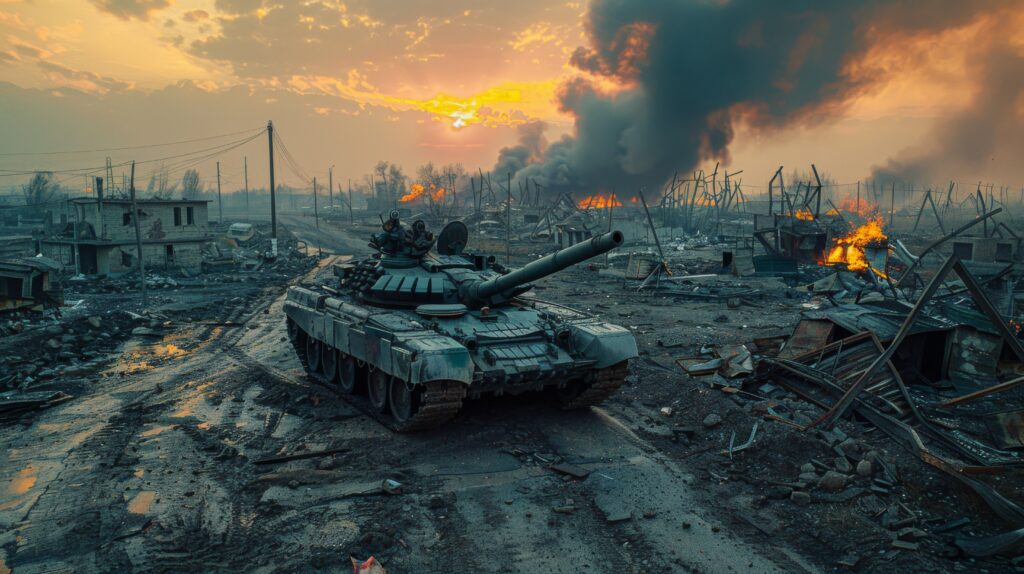By Ravi Srivastava
Europe Post World War 2 stood divided on the ideological lines. The Soviet system of communism was supposedly not gelling with liberal democracies in the rest of Europe. That was when its transatlantic partner, America, found Western Europe in need of help to stand confidently against Stalin’s Soviet Union. That led to the emergence of the North Atlantic Treaty Organisation, NATO. It committed the US, Canada and most countries of West Europe to a collective security architecture famously referred to as Article 5 of the NATO charter. The strongest glue was the perceived threat from the Soviet Union.
Europe, once assured of security, confidently focused on its prosperity and economic success. This led to the growing clout of the collective West on global affairs. The rise of the plethora of global organizations was during this period, UN, IMF, and ICJ just to name a few. It is even suggested that these organizations were conceived and designed in a manner to ensure the continued dominance of the West over international order. Whether it’s trade, financial, legal or security affairs, all these seemingly global organizations were dominated by the words and wisdom of the West. Less fortunate countries couldn’t skip these institutions and get access to growth support in terms of participating in global trade and financial inclusivity.
Great Fiasco
Western dominance in international affairs has been a reality all others have been living with for the past half a century. All attempts to surmount a counterbalance have been bulldozed, some in a subtle manner and some by clear threats. The sustained request to democratize the permanent representation in the UN Security Council by including more countries like India has not seen a purposeful progression. On the other hand, organizations like BRICS, which seem to challenge Western-led economic groupings like G7, have become a hot target for the West.
The collision of Europe and its trans-Atlantic Partner, especially the US, has been at the core of this so-called global governance template. However, this collusion has gotten hard-hitting during the Russia-Ukraine war. The US saw this war as entirely unnecessary but allowed Europe to take the lead in charting a course of response during this war. Europe, famous for cutting business-like deals all over the world, this time round was not objective with this conflict. It became an emotive issue with some prominent leaders who, in their wisdom, believed that ‘European Unity’ is far more important than adopting a realistic and fair approach towards diplomatic negotiations.

The threat of military conflict was always there, it was never a sudden development. Strangely, some leaders in Europe felt it was right to dump the diplomacy, literally opening the gates for the Russian military to enter Ukraine. It was a clear failure of hard-nosed diplomacy that led the Russian Federation to employ military means to secure its national interest. Some miscalculations and some unrealistic goals that a few European leaders used to get the US ‘on board’ fizzled out as time lapsed. The European war strategies based on faulty calculations became apparent as the war turned once very prosperous Ukraine into a haunted land.
Not The Us War
The US felt it was never its war to be fought and almost repented poor judgment by some of its European friends. President Trump has only openly called out what the US has been telling within secured discussion rooms. The unprecedented videos of the heated Trump-Zelenskyy spat in the Oval Office beamed live all over the world on 28th February have forced a complete US rethink on this entire Ukraine conflict. This, by far, is the most unambiguous opinion that has been conveyed to Europe to end its obsession with ‘winning this war’ for Ukraine. Geographically, Ukraine will always remain part of Europe, but allowing the rest of Europe to decide its future can never be the wisest call.
Ukraine has to rethink its war strategy and for once all by itself. The decision-makers in Kyiv have to be realistic about a change and not be carried away by what others may promise. In the absence of the US, President Zelensky indeed will have no cards to bargain with. President Zelensky’s war strategy is running counter to Trump’s vision, which has prioritized ending this three-year-old conflict.
There have been indications that Trump’s outreach was given a cold shrift. President Trump, now in his second tenure, appears convinced that global politics has to be played out in a way where the US national interests are taken care of as a high priority. In his vision, other critical challenges are likely to directly impact the US more shortly. The US global dominance and almost unquestioned capacity to dictate terms are under strain from an ever more assertive China that seems determined to challenge every aspect of US dominance: military, economy, technology and even global alliances. The US’s swift change of approach towards China from strategic partner to strategic competitor is a clear indication of the same.
Miscalculations
Many believe that the Russia-Ukraine war is a case of over-expectations and under-delivery by Europe. The premature closing of the door for diplomacy on the contentious issue of Ukraine joining NATO despite Russia’s vehement opposition is deemed the beginning of this unfortunate war. Ukraine has been nursing the loss of Crimea since 2014 and trying to get back even with Russia in some way. Joining NATO would have been the prized achievement, sort of an in-your-face response to Russia.

After more than three years of this bloody war, the war exit options mostly remain limited and painful. This will be even more so for Ukraine, whose survival is being remotely controlled from European capitals. Having gambled ‘all for all,’ it doesn’t have many options remaining. The continuation of war may appear to salvage some pride within, but that is a stalemate at an enormous cost for the rest of its ‘friends’. The problem now is that the US doesn’t seem to walk along like that anymore. The need of the moment is a serious retrospection by Europe while it still holds some leverage. It ironically remains at the fulcrum of this conflict even without being an active part of it. It cajoled Ukraine into believing its half promises, convinced the US to remain a silent supporter and scripted an armed conflict with Russia. Europe has much to answer as it faces a serious crisis of faith within, now that it’s being held equally accountable!
The writer has varied experience in the security paradigm and is a keen follower of global geopolitics. His work has been regularly featured in national publications.




